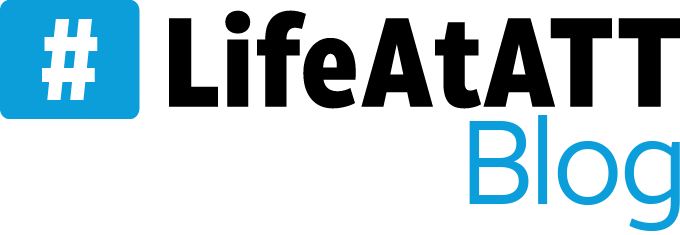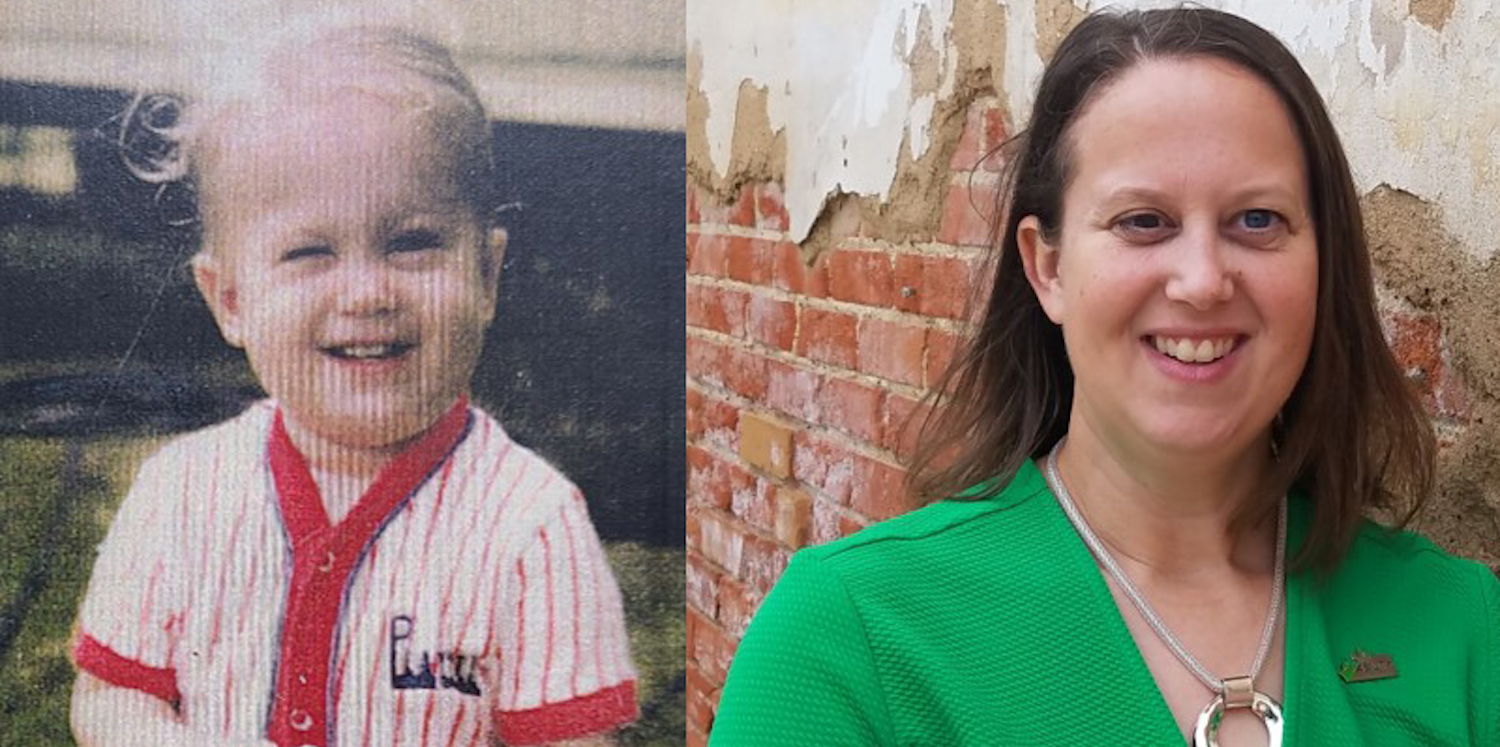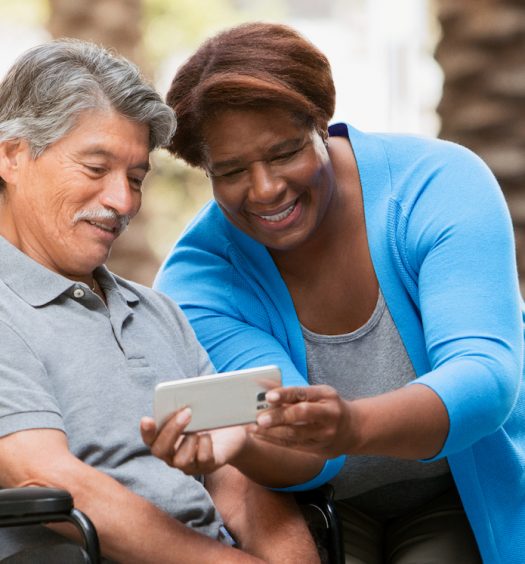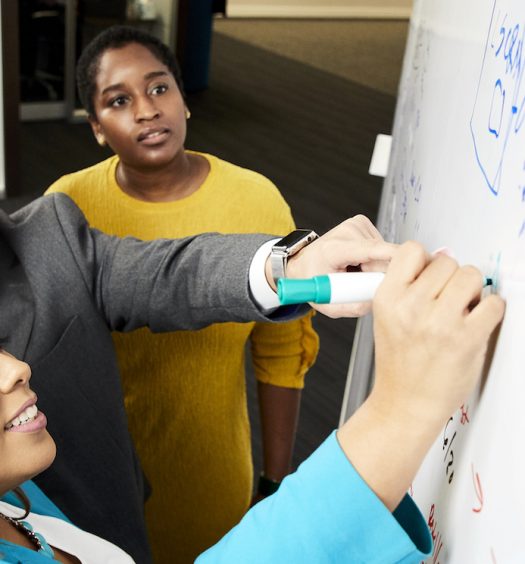Newborns sometimes face complications, but a cataract is a rarity. This eye lens issue is much more common in middle-aged to older people.
Crystal Baker was one of those rarities. After being born with a cataract, she had her right lens replaced at 2 years old as part of a research study to determine how long a new lens would last. Turns out, a lifetime.
“I am legally blind in one eye and have vision correctable to 20/20 with glasses for the other eye. This is good news and bad news,” said Crystal Baker, a lead accessibility solutions engineer in Compliance. “It’s great that I can handle all major life activities with the use of my one good eye, but that also means I’m technically not disabled.
“This makes it challenging to connect with tools and resources. You’re left trying to find your way without a solid support system.”
Roughly one quarter of the population has an impairment or disability. That’s why Crystal is part of the Chief Accessibility Office, a team that works passionately to get the word out about the Americans with Disability Act (ADA) which was signed into law 31 years ago today.
“Being legally blind does help me empathize and appreciate others with impairments and disabilities. My first accessibility job role was gifted to me because no one else in the agency wanted it at the time,” Crystal said.
“In the disability field, you meet thousands of wonderful people who help guide you to what you need to know. They mentor you along the way. It’s what I find so incredible…accessibility is a space where companies come together to collaborate, share experiences, and help each other get better in this field, rather than compete.”
Our Chief Accessibility Office team works to ensure that our internal systems are accessible to employees with disabilities.
“We do a great job meeting the ADA here at AT&T. We ensure our products and services for consumers meet or exceed requirements,” said Crystal, a nearly 20-year veteran working in accessibility. “And while we have some key programs like Job Accommodation available internally, there is still more work to do.”
Awareness, empathy and advocacy
We’ve heard about how walking a mile in someone else’s shoes can help us empathize and advocate for others. That is what the Accessibility Awareness Lab, hosted by Crystal and team, is all about. This hands-on experience brings to life the challenges faced by some of our colleagues and gives practical ways to help, like how we format our emails, Word and PowerPoint documents.
- Learn more about the AT&T Accessibility Awareness Lab
- Learn more about our Ability Employee Resource Group
- Learn more about how our people self-identify through iCount



